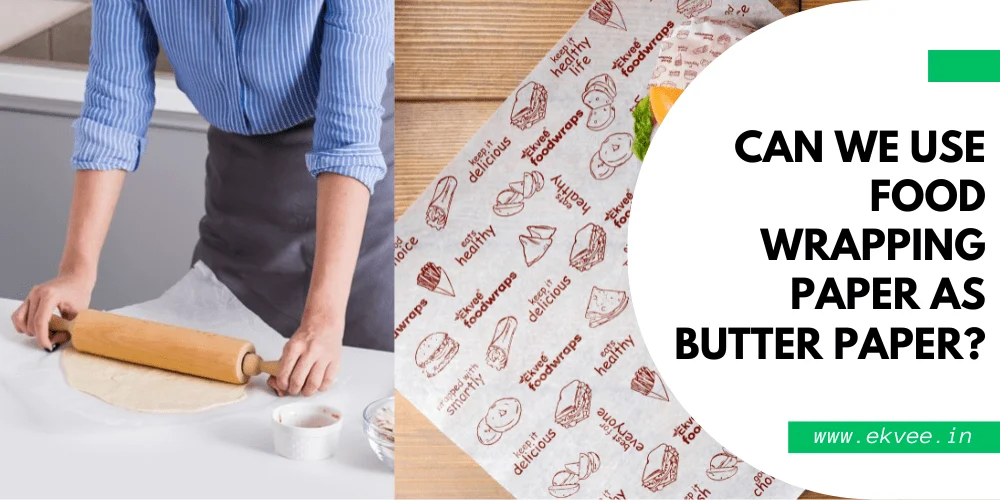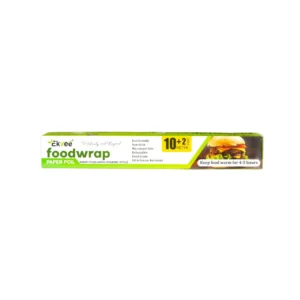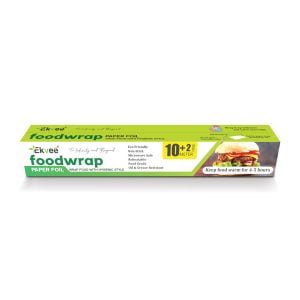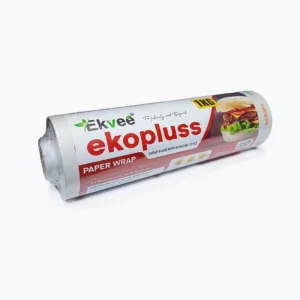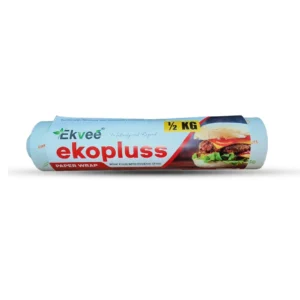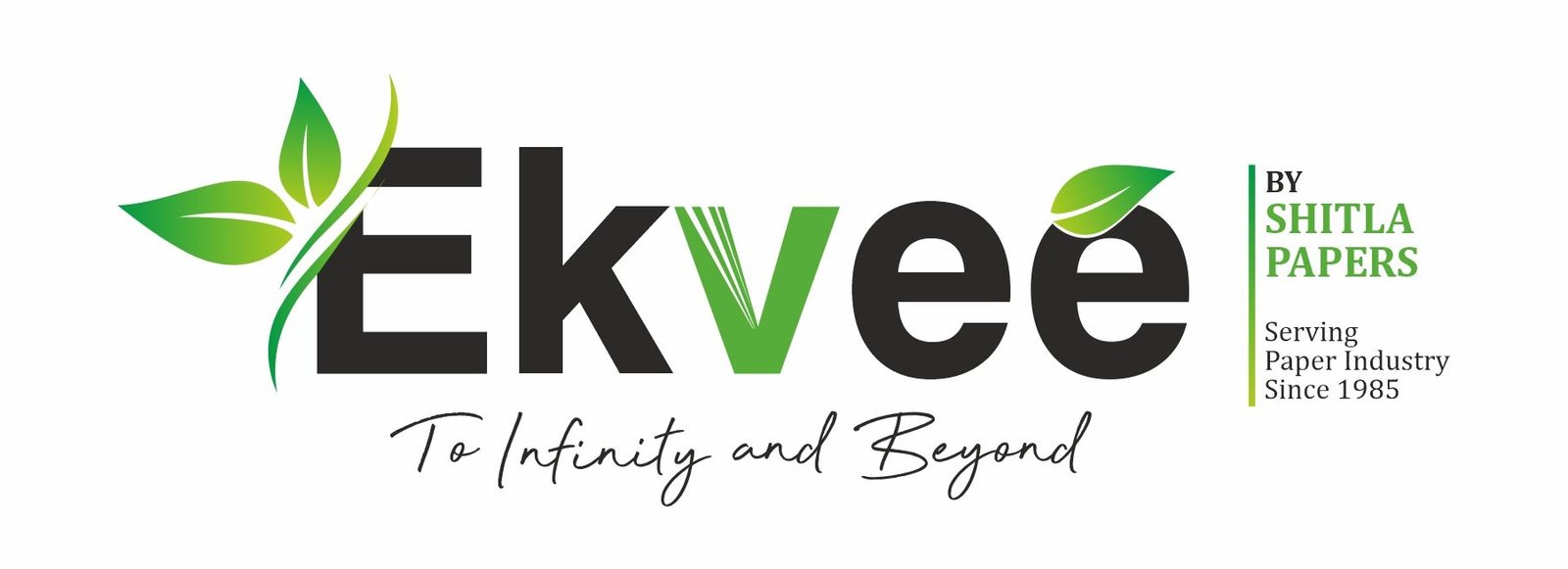Introduction
In the world of cooking and baking, where precision and attention to detail are paramount, the choice of kitchen tools and materials can significantly impact the outcome of your culinary creations. One question that often arises in the kitchen is whether you can use food wrapping paper as butter paper. To answer this question, we’ll delve into the properties of both food wrapping paper and butter paper, exploring their similarities and differences. By the end of this blog, you’ll have a clear understanding of whether food wrapping paper can serve as a viable substitute for butter paper in various culinary applications.
Table of Contents
What Is Butter Paper ?
Before we dive into the compatibility of food wrapping paper and butter paper, let’s define what butter paper is and its common uses. also known as parchment paper or baking paper, is a high-density paper that has been treated with a silicone coating to make it non-stick and heat-resistant. This coating prevents food from sticking to the paper during baking or cooking, making it an invaluable tool for many chefs and home cooks. Butter paper is often used to line baking sheets, cake pans, and other cookware to facilitate easy release of baked goods and to prevent them from sticking to the pan.
The Properties of Butter Paper
To understand whether food wrapping paper can be used as a substitute for butter-paper, it’s essential to grasp the key properties that make butter paper indispensable in the kitchen:
- Non-Stick Surface: has a silicone coating that ensures that food items do not adhere to it. This non-stick quality is particularly crucial when baking cookies, pastries, and other delicate items.
- Heat Resistance: can withstand high temperatures without burning or melting, making it suitable for use in ovens, microwaves, and even under the broiler.
- Even Heat Distribution: Butter-paper helps distribute heat evenly across the surface of the food, ensuring uniform cooking or baking.
- Easy Removal: One of the primary purposes of using butter-paper is to facilitate the easy removal of baked goods or cooked items from the pan or tray without breakage or sticking.
- Minimal Grease Required: When using butter paper, you can reduce the amount of oil or butter needed to grease the pan, resulting in healthier and less greasy dishes.
Now that we understand the essential properties of butter-paper let’s examine food wrapping paper to determine whether it can serve as a suitable substitute.
Food Wrapping Paper: The Basics
Food wrapping paper, often referred to as wax paper or greaseproof paper, is a paper product that is typically used for wrapping food items to keep them fresh and prevent moisture loss. Unlike butter-paper, food wrapping paper is not coated with silicone or any other non-stick substance. Instead, it is usually coated with wax or a food-grade grease-resistant material to make it suitable for wrapping food.
Key Properties of Food Wrapping Paper
To determine whether food wrapping paper can be used as a butter-paper alternative, let’s explore its properties:
- Grease Resistance: Food wrapping paper is designed to resist grease and moisture, which makes it suitable for wrapping sandwiches, cheese, and other oily or moist foods. However, this does not necessarily make it non-stick like butter-paper.
- Heat Tolerance: Food wrapping paper is not intended for use in high-temperature cooking or baking. When exposed to high heat, the wax or grease-resistant coating may melt, potentially transferring unwanted flavors to your food.
- Non-Stick Qualities: Food wrapping paper is not inherently non-stick, and it lacks the silicone coating that makes butter-paper ideal for baking.
- Limited Heat Distribution: Unlike butter-paper, food wrapping paper does not promote even heat distribution during cooking or baking. It may cause uneven browning and cooking of your food.
- Ease of Removal: Food wrapping paper may not provide the same level of easy food release as butter paper, which can lead to sticking and tearing.
Can You Use Food Wrapping Paper as a Substitute for Butter Paper?
Now that we’ve examined the properties of both butter paper and food wrapping paper, it’s clear that they serve distinct purposes in the kitchen. While food wrapping paper is excellent for wrapping and storing food items, it lacks the critical non-stick and heat-resistant qualities that make butter paper essential for baking and cooking.
Here’s a breakdown of when and how you can use food wrapping paper, and when it’s best to stick with butter paper:
When to Use Food Wrapping Paper:
Wrapping Food: Food wrapping paper is ideal for wrapping sandwiches, cheese, fruits, and other items you want to keep fresh or prevent moisture loss.
Lining Storage Containers: You can use food wrapping paper to line the inside of storage containers or trays to make cleaning up easier after storing food.
Separating Food Layers: When stacking items in the fridge or freezer, you can use food wrapping paper to separate layers to prevent them from sticking together.
When to Use Butter Paper (Parchment Paper):
Baking and Roasting: Butter paper is essential when baking cookies, cakes, bread, and other baked goods. It prevents sticking and promotes even baking.
- Lining Baking Sheets and Pans: When baking or roasting, use butter paper to line baking sheets and pans to ensure easy food release and effortless cleanup.
- Cooking in the Microwave or Oven: Butter paper can be used for microwave cooking to prevent food from sticking to the dish. It’s also suitable for oven use, such as roasting vegetables or cooking fish en papillote (in parchment).
- Making Candy and Sticky Treats: Butter-paper is indispensable when making caramel, toffee, or other sticky confections as it prevents them from adhering to the pan.
In summary, while food wrapping paper has its place in the kitchen for wrapping and storing food items, it cannot effectively replace butter paper when it comes to baking, roasting, and cooking. Butter paper’s non-stick, heat-resistant, and even heat distribution properties are essential for achieving the best results in these culinary applications.
Conclusion
In the world of cooking and baking, the choice of kitchen materials is crucial to achieving the desired results. While food wrapping paper serves a valuable purpose in food storage and packaging, it cannot serve as a substitute for butter-paper in baking and cooking. Butter-paper’s non-stick and heat-resistant properties are essential for preventing food from sticking to pans and ensuring even cooking and baking. Therefore, when a recipe calls for butter paper, it’s best to stick with it to ensure the best outcome for your culinary creations. Food wrapping paper and butter-paper may share some similarities in appearance, but they serve distinct purposes in the kitchen, each with its unique set of properties and applications.
Food wrapping paper and butter paper serve different purposes in the kitchen, so they are not interchangeable. Therefore, it is not recommended to use food wrapping paper as a substitute for butter-paper in baking or cooking. Always use the appropriate type of paper for the specific task to ensure the best results in your culinary endeavors.
Ekvee Food Wrap is a revolutionary product that redefines food preservation. Made from natural and eco-friendly materials, Ekvee Food Wrap offers a sustainable alternative to traditional plastic wraps. It is reusable, and easily molds to the shape of your food, providing a secure seal. Whether it’s wrapping sandwiches for lunch or storing leftovers in the refrigerator, Ekvee Food Wrap ensures your food stays fresh while minimizing environmental impact. Say goodbye to single-use plastics and make the switch to Ekvee Food Wrap for a more sustainable and eco-conscious approach to food storage. Experience the convenience of a product that cares for both your food and the planet.

